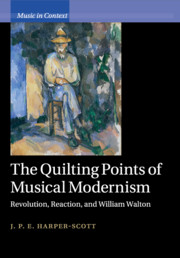Afterword: what to do?
Published online by Cambridge University Press: 05 September 2012
Summary
The ideological frame of modern musicology, democratic materialism, is seldom brought into the clearing. The revolution of the ‘new musicology’ has bequeathed a proliferating collection of subdisciplines, all of which inevitably vie for position, most of them picking the easy target of ‘elitist’, ‘Eurocentric’, faithful modernism. I share many of my colleagues' suspicion of the masculinism of some of this music's champions but am concerned by the political risk posed by attacks on it – and through it, in scholarship on pop music, film music, and particularly ethnomusicology, an attack on Western art music as a whole. Even among musicologists who still work on Western art music there is a tendency to equate canonicity of the major composers of the first two communist sequences (Beethoven, Wagner, the faithful modernists, et al.) with political configurations in the twentieth century's second communist sequence – essentially, ‘totalitarianism’ understood in the broadest terms.
All attacks on this tradition share the banality of the democratic-materialist mantra: there are only bodies and languages, there is no truth.
- Type
- Chapter
- Information
- The Quilting Points of Musical ModernismRevolution, Reaction, and William Walton, pp. 251 - 254Publisher: Cambridge University PressPrint publication year: 2012



